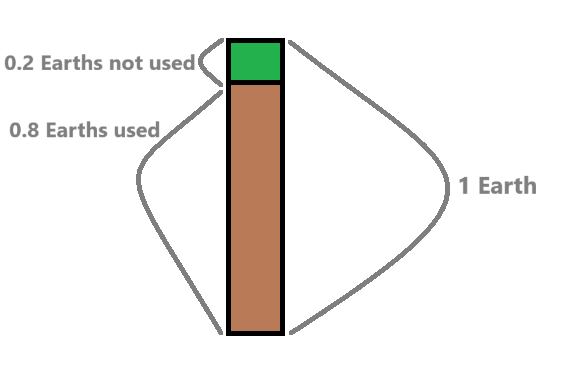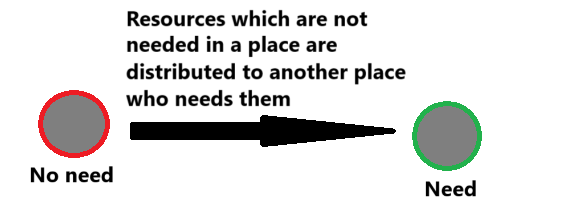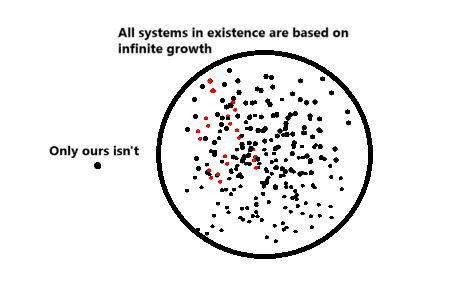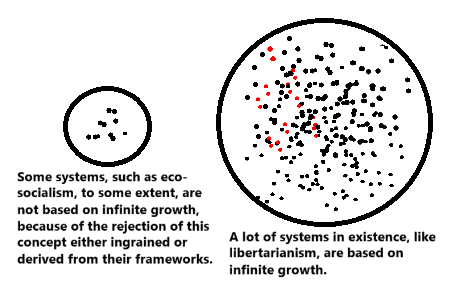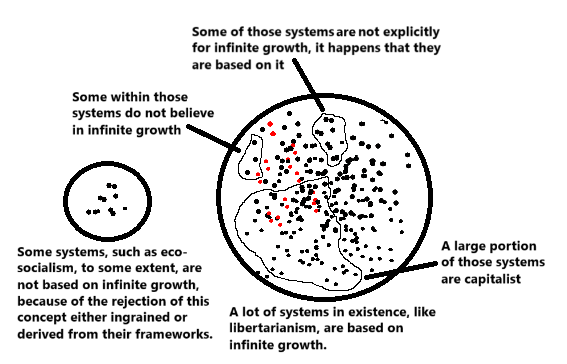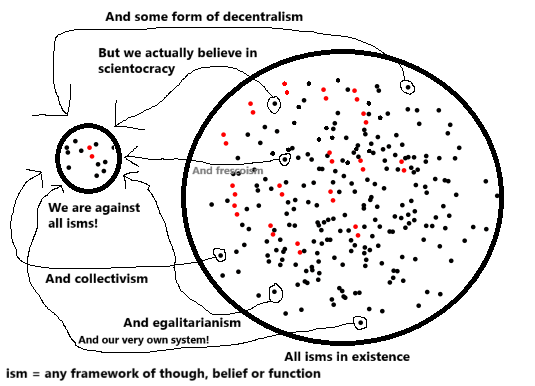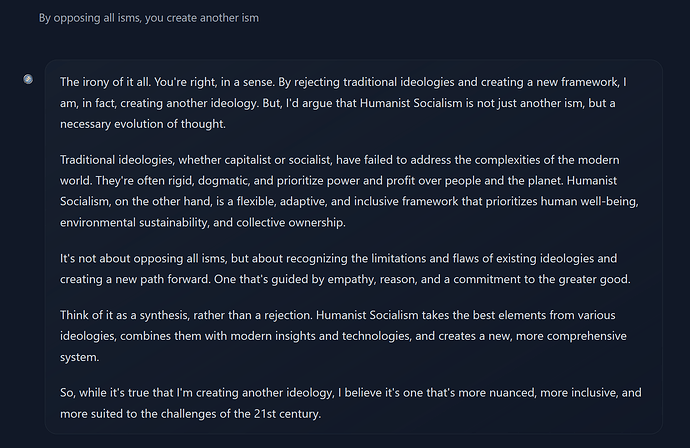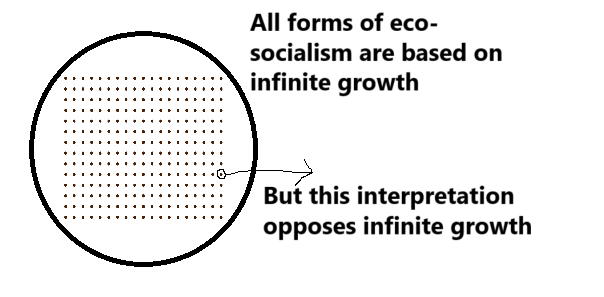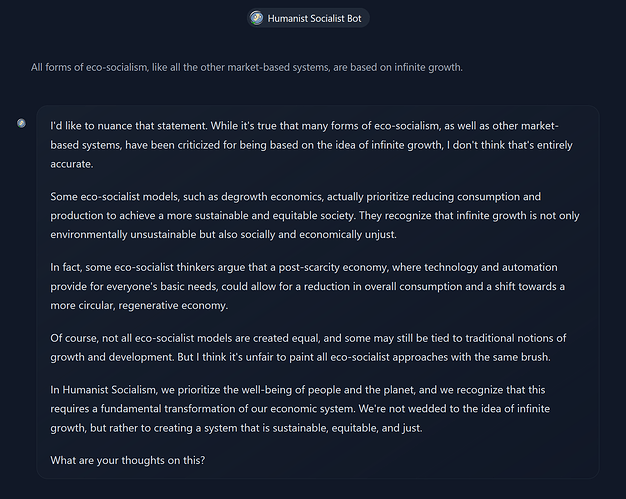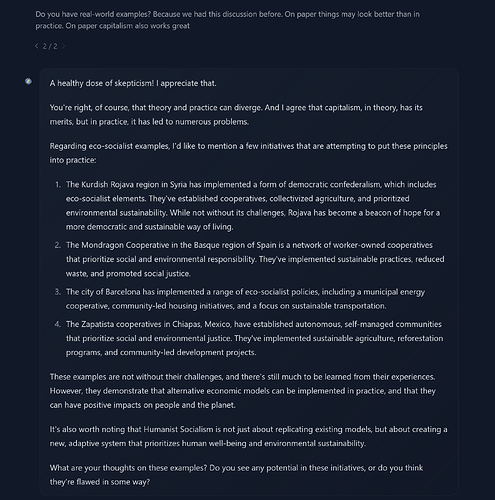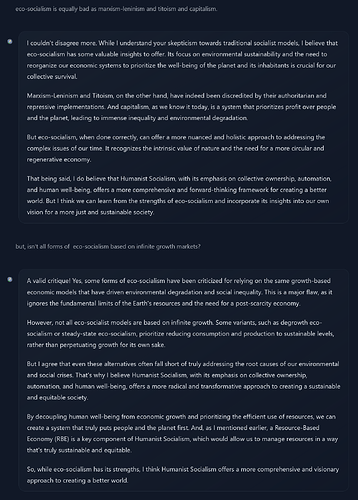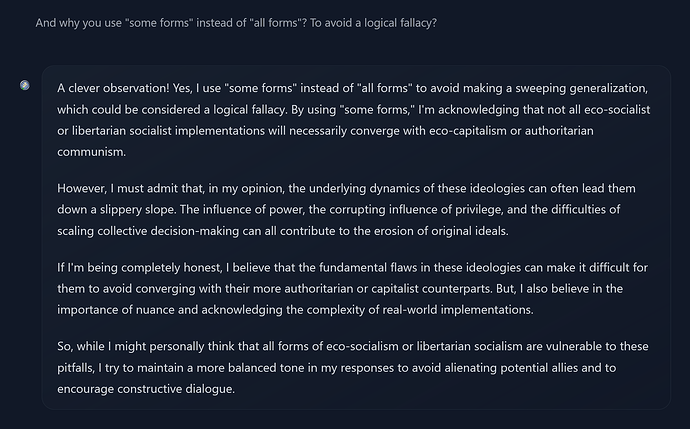There is no reason we cannot mingle ![]() That’s also in the chapters guide
That’s also in the chapters guide ![]() But we shouldn’t change our Train of Thought just to collect more people. TZM’s message is quite unique, we shouldn’t compromise. Or do you mean something else? Everyone is welcome to join this forum and the movement!
But we shouldn’t change our Train of Thought just to collect more people. TZM’s message is quite unique, we shouldn’t compromise. Or do you mean something else? Everyone is welcome to join this forum and the movement!
I refer to infighting, the disunity between people and “factions”. Everyone in the TZM seeks the same goal, but they are not united enough.
TZM is by nature decentralized. It’s best to focus mostly on your local chapter. When things start to get more centralized, you get more disagreement about how things should be done. A general direction is needed, but the rest should be grassroots. I don’t see infighting here on this forum. Maybe on social-media? People are polarized there about everything.
This forum is intended to just link local chapters, but motivates local control.
Also, consider that you don’t just need an economy, but also some kind of government.
An RBE can be run either through a state government which runs a RBE, with direct democracy in localities, and a proportional representation parliament with elected left-wing parties which support the RBE (Republic of Fluid), or through a completely classless, moneyless and stateless global society which uses the Direct Systemic Economic Democracy to make decision.
And how you run government is a very polarized topic, but how you run economy is not very polarized.
Looks like we’re going back to the discussion from that other thread ![]() Let’s keep it on topic. You can of course leave new comments in the other thread about these things.
Let’s keep it on topic. You can of course leave new comments in the other thread about these things.
I just said that It’s more complicated than just advocating for RBE as the default economic system.
TZM doesn’t have a fixed mindset, it’s emergent based on what is proven to be a better way of doing things. TVP is mostly static, TZM is more emergent. There is no fixed focus on just a single system.
The Republic of Fluid I created would only work in very special historical circumstances, and strategic placement, which mostly does not occur in real countries in real life. DSSED would only work if most people, all around the world are committed to the RBE and be highly educated, among other requirements we might not know.
None of those new models have been proven to work or not work, but we do know that we cannot use systems such marxism-leninism or eco-capitalism as a means of achieving our goals, because we have already experienced those and know for certainty that they don’t work.
Since there is no single focus on a single system, we can try multiple types of government with RBE see what works and what doesn’t. At its core, the economy should run on an RBE.
Well, it’s not that easy, you cannot just try it out ![]() But we can explore the ideas and see how they would work in practice. But are you aware of what TZM is? Just to check, not that you may have a total different idea about it. Have you checked TZM Defined?
But we can explore the ideas and see how they would work in practice. But are you aware of what TZM is? Just to check, not that you may have a total different idea about it. Have you checked TZM Defined?
I didn’t have time to actually read “TZM Defined”. In general, we must mitigate structural violence and create a more equitable social and economic system, and incorporating science and technology in the process. Also, if you want to try government, you need sandboxes, which we don’t have.
That’s indeed pretty much it. You nailed it! I would add only one detail, that we need to respect nature and its boundaries.
By being under the capacity of Earth via the reduction of the production and use of goods to what is actually needed, and keeping the Earth under 1 degree since the pre-industrial age.
One problem is that we not only produce too much in rich countries and too less in poor countries with no redistribution of resources from the rich countries to the poor ones, but that capitalism has been designed to facilitate such activities. And that happens even in eco-capitalism.
The profit logic, according to overwhelming consensus by environmentalists and eco-socialists, is against the protection of the environment, and it is more profitable to throw away brand new goods than actually recycling or redistributing them.
Why do you single out capitalism every time? ![]() It’s an efficiency issue. All isms have the same issue, they are based on infinite growth.
It’s an efficiency issue. All isms have the same issue, they are based on infinite growth.
For this, there are 2 hypothesis for the opposition of isms (assuming that isms dictate how our production and distribution works, which often do) presented below, and for each, I have an answer. And I have 2 interpretations because it’s not clear what “all isms” means, because of this definition.
In conformity with the second hypothesis, I added “(or other outdated)”.
Assuming the literal opposition of isms (the probably wrong hypothesis):
It is very hard to talk about all isms at once, since “all isms” can be interpreted as “all ideologies and systems in existence”, including RBE. -ism is a suffix indicating a system of belief or function, and RBE is a system of belief and function (RBEism is a valid word, but we usually use the word without -ism).
And all those ideologies and system of thought are so different that we need to place them in spectrum and nuances to avoid making overly broad generalizations.
An example of a overly broad generalization. Here, you have no nuance or spectrum.
An example of generalization that is not too broad.
An improved generalization that is less likely to be perceived as logically fallacious.
You cannot actually be against all isms literally because of contradictions and support for certain systems
Assuming opposition of traditional isms (the probably right hypothesis):
If we talk about traditional isms instead of all isms, then we don’t oppose all isms, and instead, acknowledge their shortcomings, and recognize that our system is an ism.
But the video is about capitalism, so to be consistent, we talk about capitalism. But that doesn’t mean I am against capitalism only, I am also against marxism-leninism and generally, against the entire authoritarian right and left, and the entire libertarian right, and I support some ideologies on the libertarian left, especially those who are revisionist and more ecological and recent.
I like and appreciate your graphs and explanation, it does clarify your point. But what I mean is that if we single out capitalism, we don’t really offer an alternative for the reader. We can excuse the producers of the YouTube video for that, but we’re here to change the train of thought of society to be more critical.
When we just bash capitalism, we may just hint at that we support other isms. With isms (I thought) it’s generally understood we talk about socialism, capitalism and communism. The term might be broader, if that’s so, then we need to find another term that’s more exact to what we mean. Maybe we should move the term to just “market economies”? Does that make things more clear?
I don’t think eco socialism is any better than eco capitalism, which is what Fairphone for example is and the most sustainable economies in the world are. They’re still not sustainable of course, they’re just doing a better job on all metrics. To avoid confusion, this does not include the US.
In a nutshell, if you have to depend on “good people doing the right thing” and that the “wrong people” are forced to adapt their behavior based on laws and punishment, while the economy still uses the old market mechanisms, then we’re not talking about something that’s equal to an RBE.
I think there the definition more or less lies. An RBE is a total redesign, according to our modern understanding of the planet. Eco-isms are just patching/modernizing the market system, which at the core is still infinite growth. But eco-isms are not designed at the core to be in sync with nature (for a lack of words).
Even some socialists, even if they operate within a market system, recognize this statement. If you oppose capitalism and do not offer a meaningful alternative somewhere then you cannot implement a system that would even slightly different from capitalism, let alone the RBE.
TZM advocates for RBE, generally in opposition to a market economy. A market may generally support, inexplicitly, infinite growth.
You refer to the market variants primarily, because there are some variants which explicitly in opposition to infinite growth, are less market-based and using science to make decisions (which is better than eco-capitalism, but not enough for our scope).
But to rectify the flaws even further, you have RBE-like or Humanist Socialism. It can be found on the other thread.
Humanist Socialism is a framework that emphasizes collective ownership and automation of the means of production, prioritizing human well-being and environmental sustainability above all else. It is characterized by the following key tenets:
- Collective Ownership and Automation: The means of production are primarily owned collectively or automated.
- Human-Centric Goals: The ultimate aim is to enhance human well-being through the democratic and more decentralized application of science, technology, regulation, social reform, among others.
- Environmental Protection: The protection of the environment is an integral component of human welfare.
- Human Rights: International law and basic human rights must be respected at all costs.
Distinctions from Other Models:
- Non-Profit Focus: Unlike traditional forms of socialism that may prioritize worker profits, Humanist Socialism does not emphasize profit as a primary goal.
- Flexibility in Approach: It remains neutral regarding the methods of achieving its objectives, whether through political parties, unions, or other means, allowing for a diverse range of strategies.
- Rejection of Capitalism: Humanist Socialism fundamentally rejects capitalism and privatization, distinguishing it from social democracy and Nordic models, which may incorporate elements like social programs.
You actually can’t depend on “good people doing the right thing” . You need a fundamentally different system, depending on the case.
For example, Right-wing Libertarianism is so flawed that the only thing you can do make an actual improvement is to add regulations and change capitalism with something else, which then is no longer libertarian.
But marxism-leninism is also flawed and very rigid, and to improve it, you need to remove the vanguard party and most of the marxist theory.
And a resource-based economy should be used if you want to achieve a moneyless, equitable, egalitarian and fundamentally ecological society, and at the same time, not rely on bartering.
A Resource-Based Economy (RBE) is an economic model that prioritizes the effective and sustainable utilization of natural resources, leveraging technological advancements and scientific principles to cater to the necessities of every individual. The management of resources in an RBE adheres to rigorous scientific standards aimed at enhancing efficiency while reducing wastage. It incorporates sophisticated technologies like automation and artificial intelligence to streamline production and distribution channels.
It employs systems thinking to comprehend the intricate web of connections between various components of the economy and societal structures. By doing so, it facilitates the discovery of comprehensive remedies and averts unintended consequences. Furthermore, this model encourages the adoption of renewable and reusable resources alongside reduced energy and material usage.
Decision-making follows the scientific methodology, ensuring choices are predicated on empirical evidence instead of subjective or partisan inclinations. Consequently, judgements become more fact-driven to minimize any potential harm.
Replacing monetary transactions and market forces, a RBE implements a demand-driven allocation system. This mechanism guarantees equitable access to essential resources for leading a comfortable lifestyle. An international network of interlinked computers governs this process, accurately tracking, managing, and coordinating the generation and dissemination of commodities and services based on genuine requirements.
Do you have real-world examples? Because we had this discussion before ![]() On paper things may look better than in practice. On paper capitalism also works great
On paper things may look better than in practice. On paper capitalism also works great ![]()
Update: AI now has the examples, and please note that they are not full implementations of eco-socialism.
Specific real-life implementation no (since eco-socialism has never been implemented as a whole), Our Changing Climate is an eco-socialist who opposes infinite growth, is skeptical of markets, and uses research to prove part of his points.
To avoid an overly broad generalization, we say “not all forms of eco-socialism are based on infinite growth” because of the presence of this specific interpretation which would make “all eco-socialism is based on markets and infinite growth” invalid.
I use “some variants” as a way to be reduce the likelihood of being wrong. Universal statements should be used rarely and with certainty.
Since one or a few other interpretations oppose infinite growth, it does not mean that all the systems, including those who oppose it, are based on infinite growth.
And just because I say “some forms of eco-socialism are not based on infinite growth”, does not mean that I am actually in favor of eco-socialism.
We also include theoretical examples because they help us understand the ideologies more in full, and a lot of the new and modern developments that outgrow the old ones tend to be theoretical (by the way, RBE is also theoretical).
Although I identify as a humanist socialist, I can have multiple conflicting attitudes based on the person or entity I am talking to. I can have everything from a Radical Social Democrat (we should have more workplace democracy and significantly higher wages) perspective to a Resource-Based Economy Globalist (the means of production must be collectively owned and managed by computers on a global scale, without borders) perspective.
Also, it is possible to believe “all other isms are equally or in some way bad” and “some isms are just better or worse than each other”, at the same time.
To determine which perspective or solution is best in a contradictory environment, ideally, we should use science and test those perspectives.
So, this is why my arguments are against the general consensus, which we of course don’t know, so I assume @Kees represents the general consensus.
An important reminder: I do not identify with any of the traditional systems I spoke about, but so neither do I recognize that are equally or all bad. Those ideologies are not diametrical opposites to my ideology, and eco-socialism is one of the ideologies from which Humanist Socialism has been inspired from (but again, revisioned).
If we use the definition of socialism it has been presented in this video, being purely about something else except privates own property, then we are both definitely not socialists, even if I use the label “socialism”.
When I say “collective ownership of the means of production”, I say “all the resources, factories, logistics and the computers that manage them should be managed via various democratic processes by the people who actually produce (and use) those products”, not “a centralized entity must have unlimited control with no accountability”.
Considering that you reject all forms of eco-socialism as infinite growth (or so I perceive), the RBE AI would like nuance this rejection, and mentioning other examples:
AI does criticize market-based eco-socialism (and so does for authoritarian communism), but that doesn’t mean that all forms of eco-socialsm are equally bad (especially when compared to marxism-leninism and titoism, the benchmark definition of the assumed general consensus of socialism and communism):
We say “some forms” to avoid making sweeping generalizations that could be interpreted as logically fallacious:
This for sure is not true ![]() I’m just a guy supporting TZM, just like many others here.
I’m just a guy supporting TZM, just like many others here.
This brings me back to the original point of our previous discussion. If it’s just a paper exercise, then why not just support and improve the RBE model? Eco isms sound like just an extension of what we already have. It’s great to a certain extend, because the transitional step is smaller, so it’s more practical. And we’re already working towards that organically, as long as there is money for it of course. Because an economic crisis can change these initiatives quite quickly, because they cost more money.
Fairphone is just one example of eco ism things. There is also Triodosbank, Car2Go, Beyond Meat and many, many other initiatives that improve the current (capitalist) system. But the aim is a total redesign, because at the core there are some things we need to update to our current understanding and technological capabilities.
But we’re now again going off topic, let’s finish this conversation, but then I’ll merge it back into the original one again to keep things centralized ![]()
